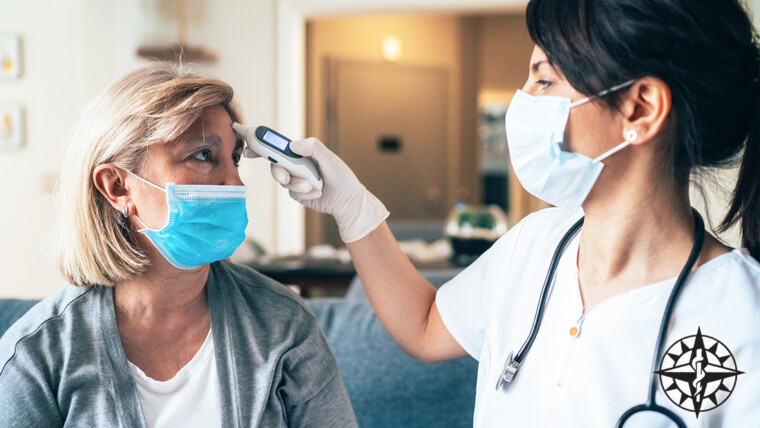Published on: July 15, 2021
There are many things to consider when you travel abroad. Things like what clothes to pack, plane tickets, travel itineraries, hotel accommodations, and medications you will need. One of the biggest questions to consider when traveling outside of the United States is whether it is safe to drink the water upon arriving at your destination? Because nothing ruins a trip quite like getting sick while traveling – and when we say, “getting sick,” we are not just talking about a couple of extra trips to the bathroom. Contaminated drinking water is a leading source of health problems for travelers.
Pollutants in drinking water can cause anything from mild gastrointestinal distress to serious bacterial diseases. As residents of the Tampa Bay area, we encourage you to visit a Tampa travel clinic before your departure to keep you informed and prepared. Click here to read more about the Infectious Disease Associates of Tampa Bay Travel Clinic.
Tap Water Regulation & Quality
In the United States, the EPA regulates public drinking water (tap water), and bottled water is monitored by the FDA which has set up purification and bottling standards that each bottling company must adhere to, making it safe for drinking. Worldwide, tap water varies from country to country. Some countries will claim it is safe to drink their water, and others publicly advise against it. One of the main reasons why a country may have poor drinking water is its poor infrastructure. The quality of the water will often follow the quality of the country’s infrastructure. However, “developed” countries are not risk-free either.
Some large cities may advertise their drinking water as being chlorinated, but this should not be interpreted that their water is contaminant-free. The best way to stay safe is to avoid it. Travelers become ill because the water pathogens are foreign to their immune systems. At the same time, locals can drink from the same source and have no issue whatsoever because they have adapted to the water supply from a very early age.
The most common contaminants found in tap water across many countries are:
- coli Bacteria
- Coliform Bacteria
- Nitrates
- Lead
- Fluoride
- Arsenic
- Radium
Research Tap Water Before You Travel Internationally
When you travel internationally, it is essential to get the facts about the water quality at your destination. Once you are armed with the facts, you can prepare upon arrival and pick up some water bottles for drinking, mouth care, and sometimes even showering. And remember, it is not just drinking – it is important to remember to avoid food that may have been rinsed in contaminated water, like salad and fresh fruit.
Additionally, freezing water (ice) does not kill bacteria. A frozen drink or an adult beverage “on the rocks” may sound incredible, but travelers will experience the same problems from ice cubes as tap water. It is vital to pay a visit to a travel clinic before your international trip. There the staff can equip you with the necessary information and guidance to keep you healthy while overseas.
Where Not to Drink Tap Water Abroad
Smart travelers invest a lot of time before their trip researching the area of the world they will be visiting. Water quality should always be an essential part of your travel research. Many countries are notorious for their bad, and sometimes toxic, water quality. You would not want to risk contracting an acute illness in a foreign country, especially if you are in a remote area without access to nearby healthcare. This risk is why it is critical to do your research before your trip and always have bottled water on hand.
Some countries and regions that have warnings about the water quality are:
- Ukraine
- The Bahamas
- Brazil
- China
- Mexico
- Russia
- India
- The Middle East
- Africa
If you are traveling to a larger city, officials may tell you the water is safer in the city than in rural areas. For instance, in Costa Rica, you will most likely find safe tap water at a major city hotel, but you would have to boil water before drinking it if you are staying in a small rural village. When in doubt, it’s always a good idea to rely on drinking bottled water, boiling your water (especially when cooking), or bringing an approved filtration system that you can trust.
How to Safely Boil Water
Boiling water sounds like a straightforward task, and, for the most part, it is. However, if you are in a situation where you need to boil your water for food safety reasons, it is essential to know how to eliminate microbes. That is right. Microbes. (Did not think of that yet? Well, we are glad you are reading this blog post!) Only simmering your water and taking it off the heat right away will not get the job done.
To safely boil your water and rid the water of dangerous microbes, the CDC recommends bringing your water to a rolling boil and boiling the water for at least one full minute. You will need to boil the water for three whole minutes if you are at a high elevation. After you have let the water cool, store your water in air-tight containers that have been appropriately sanitized. Only rinsing out your containers with the same contaminated tap water will ultimately recontaminate the water you just boiled.
Additionally, if the water you are boiling is cloudy, make sure you first filter the water with a cloth, paper towel, or coffee filter. You may also allow the sediment to settle to the bottom and only boil the clear water on top, discarding the dirty water.
Potential Illnesses from Dirty Tap Water
If you find yourself drinking polluted tap water, there are a few symptoms that you should be aware of, so if you experience them, you know what to do. A few of the overall effects of water-borne illnesses are:
- Gastrointestinal illness
- Reproductive problems
- Neurological disorders
More acute symptoms you could experience almost immediately from a water-borne illness are:
- Diarrhea
- Vomiting
- Extreme Nausea
- Fever
- Aches
- Chills
- Intestinal or Stomach Cramping
- Intestinal or Stomach Aches and Pains
- Dehydration
If you experience the above symptoms when traveling in a foreign country, you should seek medical attention right away. Symptoms will usually clear up on their own after a few days, but it is essential to get medical care if they worsen or if they are very severe. Otherwise, try to stay hydrated with sports drinks, boiled or bottled water, or otherwise safe fluids. (Ditch the caffeine and alcohol for a few days if you are recovering from a water-borne illness).
In closing, the absolute best way to protect yourself is to avoid local tap water altogether and instead seek out bottled water. When bottled water is not available, boiling tap water generally kills most microbes.
Tampa Travel Clinic | Infectious Disease Associates of Tampa Bay
Are you looking for a travel clinic in Tampa, FL? At Infectious Disease Associates of Tampa Bay, we dedicate ourselves daily to providing international travelers with the best possible guidance and travel preparation. If you or a loved one is planning an international trip and curious about what to do if you get sick, IDATB can help you prepare to minimize your travel health risks and give you peace of mind.
Infectious Disease Associates of Tampa Bay has over 30 years of experience giving expert advice to travelers and providing an in-house lab for any necessary testing. If you have any questions or concerns about contaminated water or any other infectious disease, then please feel free to contact us at 813-251-8444.





